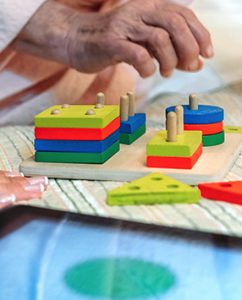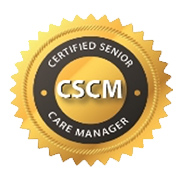Memory Care
About Memory Care
What is memory care? An Alzheimer’s & Dementia Memory Care Community is for people with middle to late stage memory conditions. Often located within larger assisted living facilities or in smaller residential settings, memory care facilities offer special needs and dementia care. They may also have the actual building set up to enhance memory functions and to decrease potential confusion for memory care residents. These secure environments often have additional safety features and clearly designated walking paths.
Activities focused on memory recall from past experiences are staples of activities in most memory care communities. While specific amenities, activities, and service options vary depending on location, the memory care units in many facilities help their memory care residents stay engaged and active in a structured environment with communal dining, brain games, art classes, music, physical therapy, fitness classes, and many other opportunities for social interaction.
Patients who are appropriate for this setting are usually those that are already residing in an assisted living environment who have begun forgetting how to perform daily activities of life or who have been getting lost, wandering about, or going into other residents’ rooms thinking it was their own. A daily routine in a structured environment has been proven to help cope with the early stages of memory loss.
Memory Care Facilities Nationwide FAQ

Many families struggle with the decision to put loved ones in nursing homes or other assisted living facilities, but sometimes it’s the greatest favor they can do. Memory Care is a specialized type of assisted living care which focuses on people with Alzheimer’s and other types of memory loss such as dementia. Here, residents engage in structured activities by specially trained staff designed to assist those with memory problems.
Memory Care Communities usually have much fewer residents than assisted living, allowing for a lower staff-to-resident ratio. Some Assisted Living Communities have designated wings for Memory Care programs. This makes it easier if one spouse required assisted living or independent living services, while the other needed Memory Care. The rooms in Memory Care are usually a little smaller to make it more manageable for your loved one. Of course, before making your decision, you can tour the residential memory care units in person and meet with the community staff.
Cognitive decline does not always mean a lesser quality of life. Your Ageless Advisor is an excellent guide to finding appropriate and safer memory care communities. For assistance in finding a senior/nursing care facility Nationwide, get in touch with a dedicated Ageless advisor. We’re here for you.

A memory care program utilizes a structured routine in conjunction with stimulating activities in a specially designed environment to reduce stress in people coping with early stage dementia, advanced dementia, late stage dementia, or Alzheimer’s disease.
Memory care residents work on engaging their senses with the supervision, guidance, and personal care services they need to succeed. Memory Care Communities Nationwide provide specialized activities for residents as well as: meals, personal care assistance (help with showering, dressing and personal hygiene), medication reminders, weekly laundering of towels and bed linens, trash removal, weekly housekeeping, social and cultural activities, wellness programs including daily exercise classes, social events, family activities, and more!
In addition to these fun everyday activities, memory care communities offer 24/7 access to licensed medical professionals and provide support your loved one will need with daily living. Further, some memory care facilities offer support groups for the family members of individuals with Alzheimer’s and dementia.

Memory Care is more expensive than the typical assisted living facility, mainly due to the increase in quality and quantity of staffing. Cost can range from $3,500 per month to $12,000 per month depending on the region of the United States and the amount of hands-on care that is needed from health care providers.
Visit our blog for more information on paying for assisted living communities.











